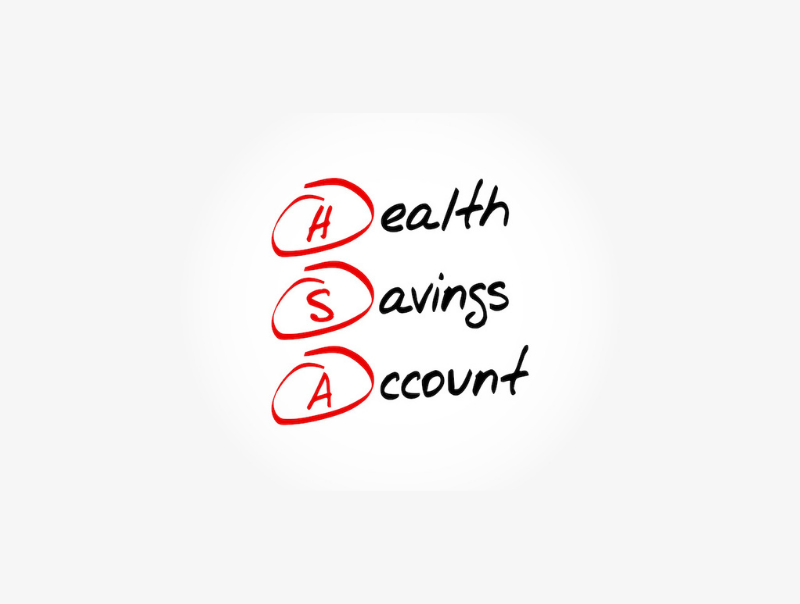Healthcare costs continue to rise across the board for Americans and medical treatments often come with outrageous, eye-popping bills. Even with good insurance, out-of-pocket healthcare costs can put an extreme burden on families.
For those seeking to ease this burden, a Health Savings Account (HSA) could be the answer. HSAs offer tax-advantaged savings for medical bills, but you’ll need to meet a few requirements to open one.
What is a Health Savings Account (HSA)?
A Health Savings Account, or HSA, is a tax-deferred savings and investment account where Americans can stash away extra cash for medical expenses. Like a traditional IRA or 401(k) plan, contributions up to a certain amount are tax-deductible and having an HSA also helps you with retirement.
Additionally, money put into an HSA can earn interest and that interest won’t be taxed.
An HSA can be opened by anyone under the age of 65 provided they’re currently enrolled in a High Deductible Health Plan (HDHP). If you’re reading this, you likely don’t need a crash course on deductibles – it’s simply the amount you pay out of pocket before insurance kicks in for coverages and rebates.
HDHPs are often bare-bones health insurance plans that cover only preventative and emergency services. For 2022, the minimum deductible for HSA eligibility is $1,400 for an individual and $2,800 for a family.
HDHPs have low monthly premiums, but copays, drugs, and other types of expenses can be quite high. The HDHP must be your only form of health insurance (no Medicare) and you’ll lose HSA eligibility if you can be claimed as a dependent on someone else’s tax return.
How Does a Health Savings Account (HSA) Work?
Let’s say you require a hospital stay or other type of medical service that results in a large out-of-pocket cost. Your HDHP may cover certain aspects if you’ve reached your deductible, but you’ll still be looking at a huge bill that must be paid from your own funds. In this scenario, you can make a withdrawal from your HSA in order to pay for the medical costs incurred.
As long as the funds are used ONLY for qualified medical expenses, you won’t be taxed or penalized on the withdrawal. The IRS website has a list of what counts as qualified medical expenses, be sure to check and make sure the services you receive count before making a withdrawal from an HSA.
Like most tax-advantaged accounts, HSAs have annual contribution limits. For this year, the maximum tax-deductible contribution to an HSA is $3,600 if you have individual coverage or $7,200 if you have family coverage.
You can contribute more to your HSA if you like, but tax breaks stop at these contribution levels. All contributions to an HSA must be reported to the IRS on Form 8889.
Also, keep records of your medical bills and expenses. You don’t need to send these in with your tax return, but it’s a good idea to have them on hand should you ever face an IRS audit.
Benefits of a Health Savings Account (HSA)
A health savings account (HSA) can help you lower your taxes, pay for health care, and even save for retirement. Let’s review the benefits:
Reduce Taxable Income – An HSA is yet another vehicle where Americans can save cash in a tax-free manner. If you’re looking to put extra cash away without the IRS getting its paws on it, an HSA is a convenient way to make that happen. Your contributions are tax-deductible up to a certain limit and interest accrues tax-free.
Restrictions Disappear at Age 65 – You can only use funds in an HSA for qualified medical expenses, otherwise, you could face taxes and an extra 20% penalty. But once you hit age 65, withdrawals can be made for any purpose and you won’t incur a penalty.
Thanks to this rule, many savers use their HSA as an extra retirement account where a nest egg can grow tax-free. Then at age 65, they can begin tapping the account without penalty (although taxes will apply if you don’t use the funds for medical expenses).
Control Over Your Funds – Your HSA is completely in your control. You decide whether to put your cash into the market or not and you can always change your account composition should your situation change. Compare this to a 401(k) plan where you can only invest in mutual funds or money market funds.
Extra Tax-Deferred Savings for HNW Individuals – If you have a high income, you won’t be able to leverage tax-deferred accounts like IRAs. But an HSA gives high net worth individuals an extra vehicle to put some cash away without being taxed.
Drawbacks of a Health Savings Account (HSA)
HDHPs Aren’t Ideal – Your monthly premium might be lower on an HDHP, but these insurance plans are generally regarded as less than ideal compared to lower deductible plans. If you need an HDHP because monthly premiums on other plans are too costly, then you’ll likely struggle to fund an HSA as well.
Taxes Become More Complicated – You’ll need to report your contributions to the IRS each year when you do your income taxes. If you contribute too much to your HSA, you could face extra penalties as well. Record-keeping also becomes important since you’ll want proof of your expenses should the IRS audit you.
Medicare Cancels Out HSAs – You can use your funds for any purpose without penalty after age 65, but if you’re enrolled in Medicare, you can no longer contribute funds to your account. You’ll lose the ability to contribute tax-deductible funds to your account, although you can still earn profits from interest or investment growth.
Are Health Savings Accounts (HSAs) Worth It?
An HSA can provide much-needed financial support should medical costs become overly burdensome. And if you’re a high earner and want an extra place to park some tax-deferred savings, an HSA can turn into a nice little nest egg.
But for many Americans, the benefits of an HSA are outweighed by the downsides of an HDHP. If you need such a health plan in order to lower your monthly premium to a reasonable rate, you’ll likely struggle to save an ample amount in an HSA.
HSAs can be effective tools for conscientious savers, but be sure to consult with your advisor to see if it’s the best course of action for you personally.
Ascendant Financial Solutions, Inc. is an independent SEC Registered Investment Advisory firm serving clients in the Flagstaff and Phoenix, Arizona areas. With more than thirty years of experience in the financial industry, we seek to help families ascend to greater financial heights on their journey to financial freedom.
No matter how complex your financial goals are, our team will strive to rise to the challenge to help you meet your goals,
As an advisory firm, we help professionals, families, and business owners manage their retirement accounts, build their wealth through investments, advise on saving and investing for college, and help make other important financial decisions.
Contact us today to learn more about how we can make your dreams come true.
Securities offered through Geneos Wealth Management, Inc. Member FINRA/SIPC. Advisory services offered through Ascendant Financial Solutions and Gĕneos Wealth Management Inc.
*Please Note: Limitations. The scope of any financial planning and consulting services to be provided depends upon the terms of the engagement, and the specific requests and needs of the client. Ascendant does not serve as an accountant, nor does it prepare tax returns. Defer to your tax professionals. Different types of investments involve varying degrees of risk. Therefore, it should not be assumed that future performance of any specific investment or investment strategy (including the investments and/or investment strategies recommended and/or undertaken by Ascendant), or any planning or consulting services, will be profitable, equal any historical performance level(s), or prove successful. A copy of our current written disclosure Brochure discussing our advisory services and fees continues to remain available upon request or at www.ascendant-financial.com.


